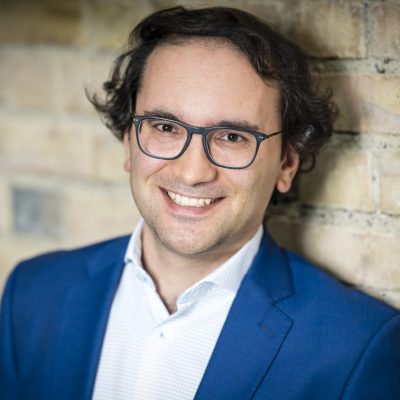
Dr. Benjamin Hofmann
TdLab, ETH Zurich / Eawag
Benjamin Hofmann is currently a Scientist in the Inter- and Transdisciplinary Research group at Eawag and, from August 2025, will be Group Leader at TdLab of ETH Zurich. His work focuses on science-policy-practice interfaces and the roles of science in environmental sustainability. He leads the project “Transforming Science-Society Relations in the Anthropocene” (Anthro:Relate) and has led knowledge integration in the inter- and transdisciplinary project “Evidence-based Transformation in Pesticide Governance” (Trapego).
He holds a PhD from the University of St. Gallen, where he analyzed business influence in international ocean governance. He has experience in policymaking and diplomacy from an international organization and is a fellow of the Earth System Governance Project and the tdAcademy. He is also an elected member of the Swiss Young Academy and has taught university courses on environmental and climate politics.
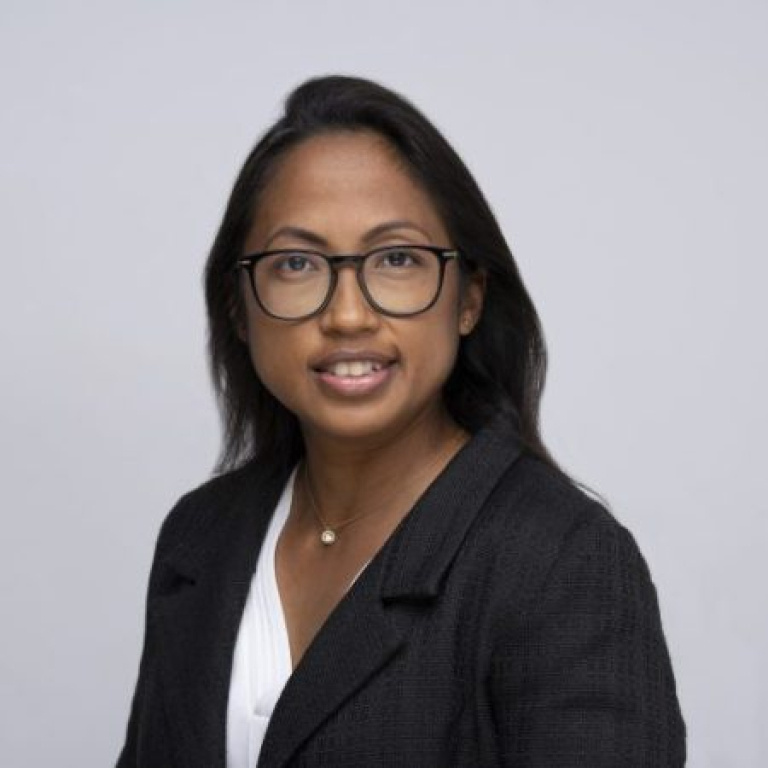
Dr Mialy Rann
Science-Policy Officer at the Geneva Science Policy Interface
Dr Mialy Rann is the Science-Policy Officer of the GSPI. She coordinates the capacity-building activities of the GSPI and oversees the implementation of science-policy projects funded by the GSPI. Mialy has extensive research experience in sustainability and marine biodiversity policy. She also has practical experience, she advised NGOs and contributed to the work of science-policy interfaces such as the IPBES. She holds a Master’s Degree in Nature Conservation Leadership from Cambridge University and a PhD in Geography from the University of Lausanne.
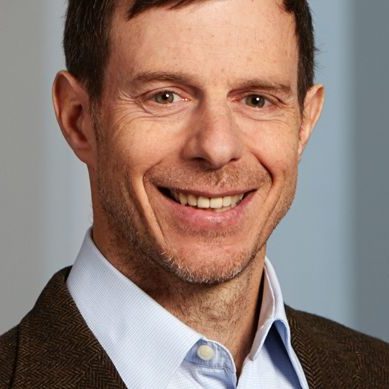
Pr Anthony Patt
ETH Zürich, Full Professor at the Department of Environmental Systems Science,
Deputy head of Institute for Environmental Decisions
Anthony Patt is a Full Professor at the Department of Environmental Systems Science and Deputy Head of the Institute for Environmental Decisions at ETH Zürich. His research focuses on identifying effective governmental approaches to eliminate societal greenhouse gas emissions and adapt to climate change. His work involves understanding societal processes related to consumption patterns and technology use, as well as modeling the interactions between people, institutions, and technological systems.
Professor Patt has published over 100 articles in peer-reviewed journals, including Science, Nature, and Proceedings of the National Academy of Sciences. He holds a bachelor’s degree in Architecture and Landscape Design from Yale University, a Juris Doctor from Duke University, and a Master of Public Policy and PhD in Public Policy from Harvard University.
Before joining ETH Zürich in 2013, he worked as an Assistant Professor at Boston University and headed the Decisions and Governance research group at the International Institute for Applied Systems Analysis in Austria. He has also served as a Lead Author for the Intergovernmental Panel on Climate Change.
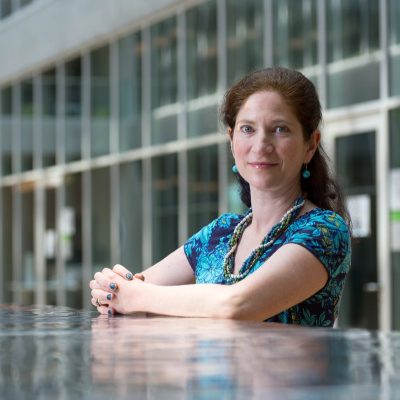
Pr Julia Steinberger
Professor Julia Steinberger researches Ecological Economics at the University of Lausanne in Switzerland.
After a PhD in experimental physics, Professor Steinberger moved to the interdisciplinary areas of industrial ecology and ecological economics, first as a postdoc at the universities of Lausanne and Zurich, then in Vienna at the Institute of Social Ecology, and subsequently as a professor at the University of Leeds in the UK.
Her research examines the connections between resource use (energy and materials, greenhouse gas emissions) and societal performance (economic activity and human wellbeing).
From 2017 to 2022, she was the recipient of a Leverhulme Research Leadership Award for her research project ‘Living Well Within Limits’, investigating how universal human well-being might be achieved within planetary boundaries.
Since 2023, she co-leads the EU ERC Synergy grant “REAL- A Post-Growth Deal” on post-growth societies. She is Lead Author for the IPCC’s 6th Assessment Report with Working Group 3.
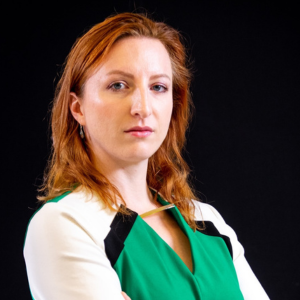
Pr Ginie Servant-Miklos
Assistant Professor in the Department of Clinical Psychology at the Erasmus School of Social and Behavioural Sciences,
Associate Member of the Club of Rome
Ginie Servant-Miklos is an engaged environmental educator with fifteen years of experience in education practice, research, and advocacy. Based at the Erasmus School of Social and Behavioural Sciences in Rotterdam, The Netherlands, her research and education work focuses on developing innovative pedagogies for societal impact. She developed the Experimental Pedagogics educational design framework, co-founded the Bildung Climate School with Prof. Rutger Engels, and is the author of “Pedagogies of Collapse: A Hopeful Education for the End of the World as We Know It”. She is a Senior Fellow of the Comenius Network for educational innovators in the Netherlands, and an Associate Member of the Club of Rome. She is the founder and chair of the board of the FairFight Foundation, an organisation that provides girls and women from Zambia and Zimbabwe with the mental and physical benefits of martial arts practice, as well as educational support. Ginie is a vocal activist for sustainability and gender equality, advocating for change through public engagements like TEDx talks, debates, podcasts, and other digital media outlets.
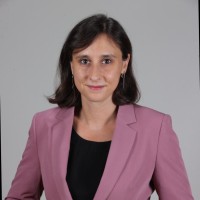
Dr Yasmine Farhat
Environmental Protection Agency of US
Yasmine Farhat is an environmental chemist and currently serves as a Science and Technology Policy Fellow at the United States Environmental Protection Agency (EPA) in the Climate Change Division. She is passionate about climate change, environmental quality, food security, and sustainability. Her work involves developing and assessing solutions to boost local capacity while considering possible trade-offs.
She has a transdisciplinary background in environmental quality and significant outreach experience from working with communities and stakeholders in Lebanon and Cambodia. She is also interested in science communication and has been actively involved in organizations focused on this field.
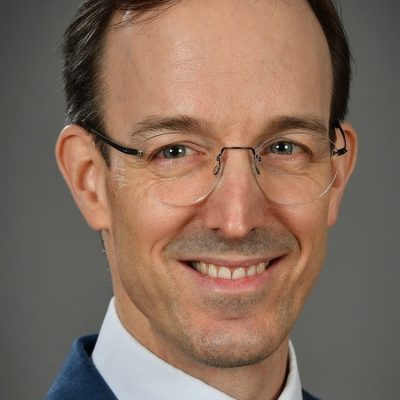
Dr Philipp Langer
EPFL, Senior Advisor to the Presidency
Philipp Langer works as the Senior Advisor to EPFL’s President Anna Fontcuberta i Morral since January 2025. In this function, he advises the President, the Provost and the Chief of Staff on strategic political and international topics. He recommends approaches and solutions on complex political, institutional, and international matters, ensures alignment with the President’s vision and EPFL’s global strategic goals, and interacts with and manages relationships with key stakeholders in collaboration with the specialised units at EPFL.
Until December 2024, Philipp worked as the Head of International Research and Innovation Programmes at Switzerland’s State Secretariat for Education, Research and Innovation (SERI), in charge of the international and national processes for Switzerland’s participation in EU and other international Research and Innovation programmes. In this function, Philipp was the Swiss Deputy Chief Negotiator for Switzerland’s association to the EU programmes Horizon Europe, the Euratom Programme, the Digital Europe Programme and the research infrastructure ITER in 2023/2024. He also conducted the negotiations for Switzerland’s partial and then full association to Horizon 2020 and related programmes in 2014, after Switzerland’s exclusion in the context of the Mass Immigration Initiative. Finally, he was the Swiss Chair of the Joint Committee EU/Euratom –Switzerland between 2018 and 2024. During Switzerland’s status as non-associated third country, he and his team designed and implemented replacement measures for Swiss research and innovation actors (some 3 bn CHF committed funding in approx. 2’600 subsidy agreements).
Before joining the Ministry in 2009, Philipp Langer pursued an academic career: After a BSc / MSc in Pharmaceutical Sciences at the University of Lausanne (Switzerland), he did his PhD in Behavioural Genetics in Lausanne and Australia, with main results published in Nature. Following this, he did a PostDoc at Harvard University (USA) in Game Theory. Philipp also worked in other research topics such as brain research (ETH & Univ. Zurich, Switzerland) and cardiovascular diseases (University of British Columbia, Vancouver, Canada). After his academic path, he worked as scientific advisor(‘Congress Fellow’) in the Swiss Parliament, as an employee of a PR agency, and he co-founded an SME in the IT security sector. In 2024, he completed an EMBA at IMD in Lausanne.
Philipp Langer lives in the French part of Switzerland; he was born in Zurich in 1972 and holds Swiss and Austrian citizenship.

Dr Sascha Nick
EPFL, Laboratory of Environmental and Urban Economics – LEURE
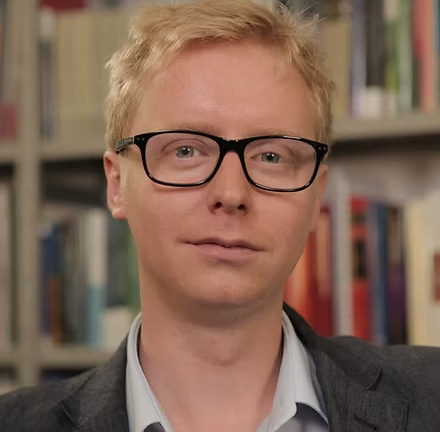
Dr Jack R. Williams
President of the Institute for Global Negotiation
Dr. Jack R. Williams is the President of the Institute for Global Negotiation a non-profit association based in Zurich that promotes and supports the use of negotiation as an essential tool in building a more equitable, peaceful, and sustainable world.
Jack teaches negotiation and conflict resolution at universities across the world including as an Adjunct Professor at Sciences Po Paris and guest lecturers at the University of Zurich and EPFL. He is also an External Consultant leading workshops and courses in various programs for the United Nations Institute for Training and Research (UNITAR). Previously, Jack was an Assistant Professor of International Relations and Acting Dean of the College of International Studies at the American University of Kurdistan in Northern Iraq.
Jack received his PhD in Political Philosophy from the University of Zurich, during which time he was a visiting researcher at Princeton University. Jack has also worked as a Junior Research Fellow at the Institute of European and International Economic Law at the University of Bern as well as a Summer Academy and MILE Fellow at the World Trade Institute.
Jack is a CEDR-accredited mediator and volunteers as a neighbourhood mediator for Mediation Plus in the United Kingdom.
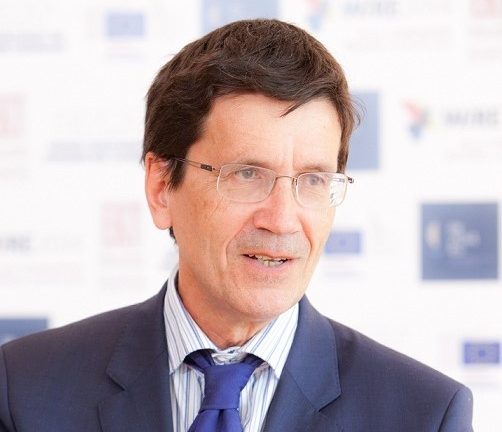
Pr Dominique Foray
EPFL, Professor Emeritus
Pr Foray is an Emeritus Professor at EPFL and holds the Chair of Economics and Management of Innovation (CEMI). He is an expert in the economics of innovation and knowledge, with a focus on the economic policy implications of the knowledge-based economy. His research interests include innovation policies and the role of science and technology in economic development.
Professor Foray has held a membership in the Swiss National Research Council and the Expert Commission for Research and Innovation of Germany. He has also served as chairman of the expert group “Knowledge for Growth,” advising the European Commission on innovation and growth strategies. He is a member of the Swiss Council for Science and chairman of the Advisory Board of the Swiss Economic Research Institute (KOF).
Professor Foray received his Ph.D. in economics from the University Lumière of Lyon and has held academic positions at the Centre National de la Recherche Scientifique (CNRS) and the Ecole Centrale de Paris.
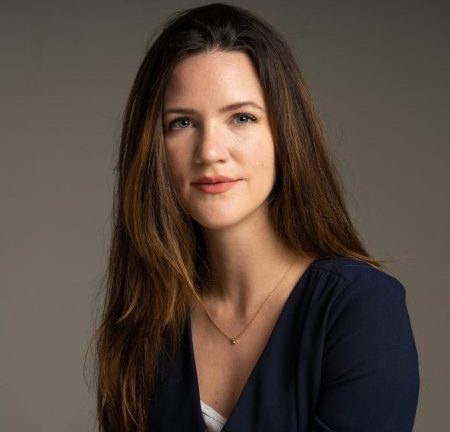
Erin Skoczylas
Communications Specialist, Ocean Action Agenda, World Economic Forum
Erin is a strategic communications specialist advancing ocean, nature and climate action through high-impact storytelling, stakeholder engagement, and narrative development. At the World Economic Forum, she manages communications for the Ocean Action Agenda, which builds partnerships across business, government, academia, and civil society. Her work focuses on shaping the global dialogue around the business case for nature and the blue economy—building trust, driving collaboration, and mobilizing action across sectors to support a resilient, sustainable, and inclusive ocean future.
Prior to joining the Forum, Erin led programme communications at the Ocean Risk and Resilience Action Alliance (ORRAA), supporting innovative approaches to finance and insurance that reduce ocean risk and strengthen coastal resilience. She has also developed strategic communications for leading conservation organizations including IUCN, WWF, and the Sustainable Fisheries Partnership. She brings a systems perspective and a focus on mainstreaming narratives translate complex ideas into compelling messages that drive action for people and the planet.
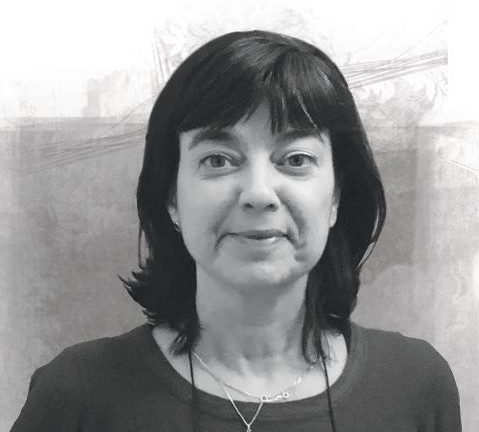
Filipa Vala
Joint Research Centre, EU
A scientist turned science communicator turned knowledge broker, Filipa Vala works at the Joint Research Centre Science for Democracy and Evidence-Informed Policymaking Unit (JRC S.2) to help EU Member States develop their Ecosystems for Evidence-Informed Policymaking. A PhD in evolutionary ecology, she worked as a researcher and the as science communicator before working on how to find a mobilize evidence to improve public policy.
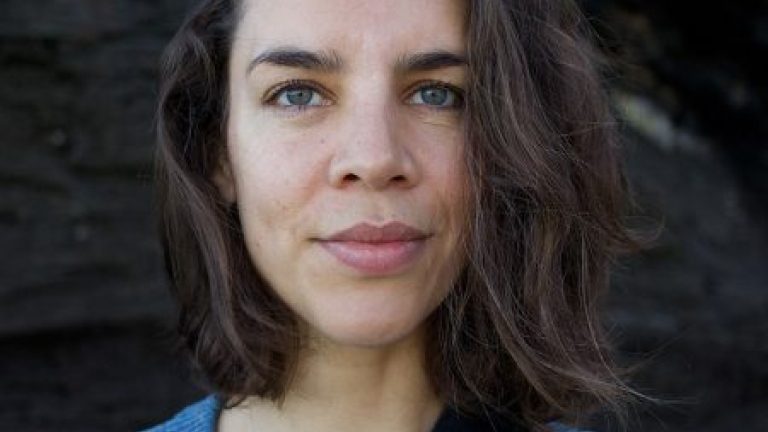
Melissa Gomis
Policy Engagement Officer, GSPI
Melissa Gomis is the the Policy Engagement Officer of the GSPI, responsible for initiating, supporting, and promoting collaborative projects that engage the scientific community to address urgent and global challenges identified by multilateral U.N. stakeholders in Geneva. She has an environmental background with experience in chemical pollution, climate change, and plastic pollution. She also contributed to the Intergovernmental Panel on Climate Change (IPCC) Working Group I. She holds a PhD in Environmental Sciences from Stockholm University, where she focused her research on human exposure to PFAS.
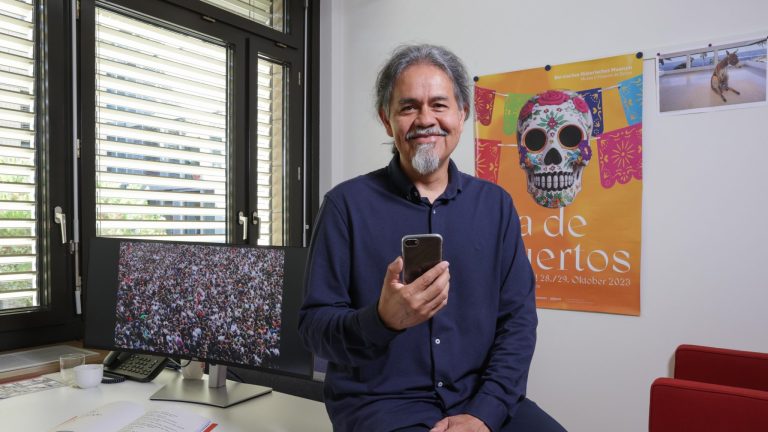
Pr Daniel Gatica-Perez
EPFL and Idiap Research Institute, Social Computing Group
Daniel Gatica-Perez leads the Social Computing group at Idiap and is a professor at EPFL’s School of Engineering and College of Humanities. His research examines how people and technology interact in everyday life. His work integrates human-centered and participatory methods with mobile, social, and AI technologies to support communities, cities, and public health. He has also worked with organizations on social innovation projects.
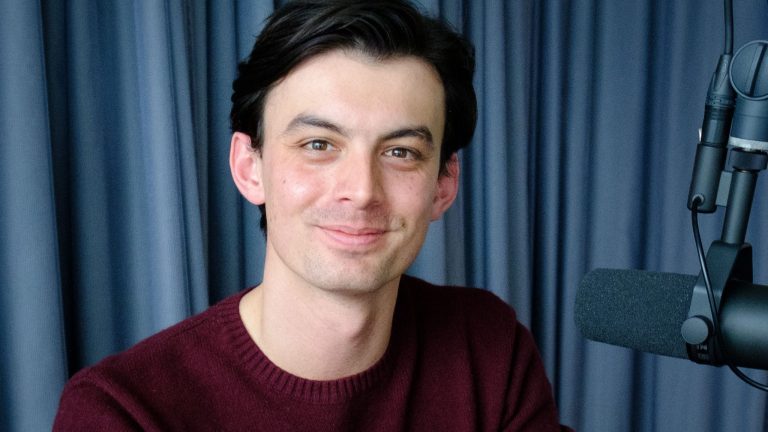
Mathieu Chaffard
Digital Ecosystem Innovation Manager (Roche Diagnostics),
Podcast Host | Impulse – Meeting Healthcare Pioneers
Mathieu is a Digital Ecosystem Innovation Manager at Roche Diagnostics, leading cross-functional projects in digital health and new care models for cardiometabolic diseases. He is the creator and host of Impulse, a leading European podcast on healthcare innovation, and speaks regularly at international conferences. Mathieu also writes for Healthcare Transformers and hosts podcasts including Cardio Insights by Roche and the Oxa Podcast by Nanoleq.
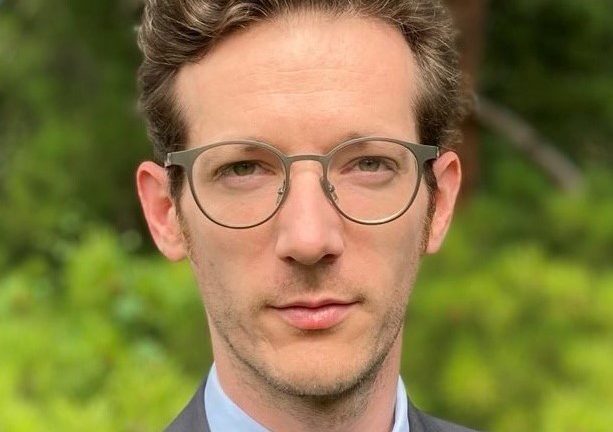
Dr. Alexander Barclay
Digital policy delegate for the canton of Geneva
Alexander Barclay is the delegate for digital policy of the canton of Geneva. In this position, he advises the government on issues pertaining to the digital transition across policymaking fields. He holds a PhD from the University of St.Gallen and teaches at Sciences Po Paris.
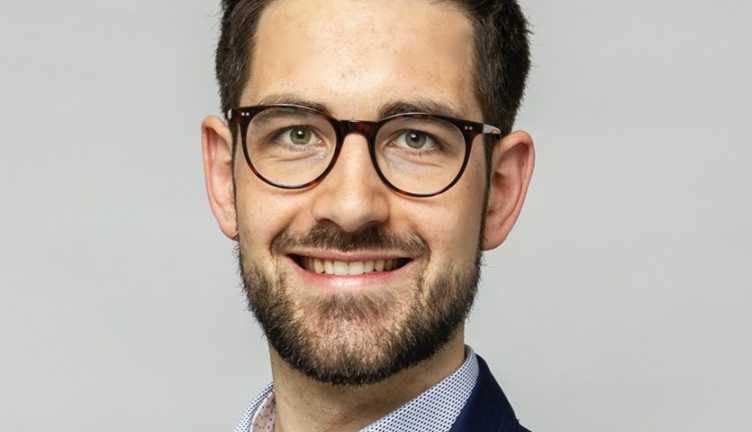
Dr. Benedikt Knusel
Head Science-Policy Interface at ETHZ
Benedikt Knüsel is Head of the Science‑Policy Interface at ETH Zurich’s Office of Knowledge Transfer & Corporate Relations. An environmental scientist by training, he holds a PhD in philosophy of climate science from ETH and an Executive MPA from the University of Bern. Before joining ETH, he was a scientific advisor at the Swiss State Secretariat for Education, Research & Innovation. At ETH, he leads efforts to strengthen science-based policy engagement across disciplines.
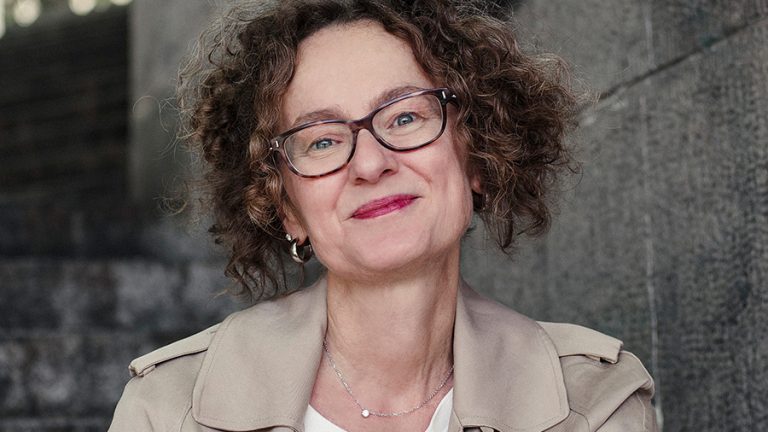
Rosy Mondardini
UZH/ETH Citizen Science Zurich
Rosy Mondardini has a background in physics and started her research career at FERMILAB (USA) and CERN (Switzerland), where she worked for almost 10 years in research before focusing her energy and passion on science for social change. From 2008 to 2015 she was Associate Director at the World Economic Forum, where she established and managed the Young Global Leaders Alumni community. In 2015 Rosy took up the role of Co-Director at the Citizen Cyberlab in Geneva, a partnership between CERN, UNITAR, and University of Geneva, working with international organizations to shape the contribution of Citizen Science to sustainable development. Rosy joined the Competence Center – Citizen Science in Zurich at its creation in 2017 and managed its establishment of growth till 2022. As of 2023, she’s responsible of Research and Development, focusing on current and future projects to raise the impact, scientific reputation, and national and international visibility of Citizen Science Zurich and of its funder institutions. Rosy is active in national and international Citizen Science task forces and networks, and she has been a driving force behind the establishment of the Citizen Science Global Partnership.
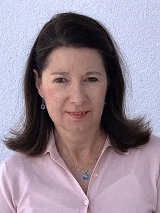
Marie-Valentine Florin
Marie-Valentine received her Masters in Public Policy and Management from Science Po in Paris, and then had a successful career in socio-cultural research and marketing within a consulting agency. She continued to earn further education in marketing strategy, sustainable development and environmental diplomacy. Then, for almost 20 years, she led the International Risk Governance Council (a private Foundation) and Center (at EPFL), both dedicated to improving public policy regarding complex risk issues where science and technology play some role. She gained a wealth of experience in leading workshops with expert participants (scientists, industry and policy makers) to facilitate the difficult work of improving evidence-based public policy.